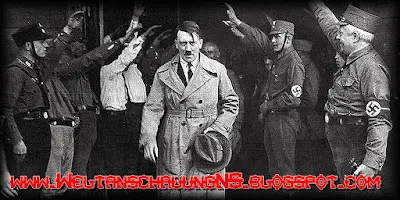 |
| José Pulido. Photo: Vasco Szinetar |
José Pulido was part of one of the most beautiful and beloved traditions in Caracas: Sunday, buying the papers, having breakfast at the bakery, going up the Ávila, enjoying the blue butterflies and the singing of Quebrada Quintero, spreading the papers among the stones and then… José Pulido and his interview completed the happiness of the day. It did not matter who he interviewed, because the real pleasure was reading him. And my friends would go: what does Pulido say? Have you read what Pulido said? Pulido is so wonderful! Pulido was the main character. Then came the person being interviewed. Because reading José Pulido is good for you. It gives you joy. It makes you think. Because José Pulido writes with humor, tenderness, compassion, intelligence, love. José Pulido the poet, the writer, the journalist. The interviewer who created a new style. The kind, simple and tender man who creates bridges for people to meet, to cross, to discover the other side of their side.
José Pulido, who does not deserve to be exiled like he is today, walking around Genoa while he goes around Caracas.
And José Pulido is also Carlos Giménez, who he and I love so much, and that beautiful article he wrote: Carlitos sin olvido (Carlitos without oblivion). And he is that marvelous interview he just made to another wonderful and beloved figure from Caracas: Rolando Peña. An interview that is like a story written with four hands. An interview that is like a love letter.
And José Pulido is this poem of his, which I find while I'm writing this and then I'm out of words.
THE OLD SONG
Before antiquity arrived
the birds that died
turned into carnelian and tourmaline
John claimed in the Book of Revelation that the face of god was made of jasper and carnelian
birds probably made one of their best graveyards in that face
All mountains have been built out of birds' ancestors
From a yellow, blue and green bird
who dies when put in a cage and sings in beautiful fury
the mountain of Caracas was born creating ripples of water and branches
the Ávila of stones and roots, spit with Pleiades
is our most concrete mountain
I wish I could sweep its pathways with a broom of dreams
clean them up of all miseries
It is so big it could only fit into the universe once
when the heavens dilated
so that mangos could bloom
hummingbirds in the Ávila seem as if they were invented by Borges:
they fly backwards because they care more about the beginning than the end
the Ávila is huge but it is not so hard to carry in a bag
it is completely portable when carried as a feeling
especially if you have looked at its mermaid-like curves,
its crests resembling a resting animal
Or if you have ever heard the waters talk in Quebrada Quintero
about how to go down to the Caribbean Sea without having to ask for
directions in the valley
In the afternoon the mountain opens its eye made of sun
An eye that falls asleep on the voracious head of dry trees
at night it crouches with its breath of burning plants
ready to jump again on the fearful valley with its rabbit heart
this is the mountain that feeds on looks
that on the beach side is the Ávila of Reverón
deranged by light
and on the Caracas side is the Ávila of Cabré
borrowing the iridescence of the sparkling hummingbird
and all Pleiades sneeze with love when molasses grass stirs,
the delicious herb
and at the top and the bottom it is the Ávila of everyone and no one
a mountain that is like the Virgin of Coromoto and the Virgin of the Valley
like La Chinita and the Divina Pastora
because you do not have to know its pathways
to believe it represents our customs
The mountain was a bedroom for clouds a million years ago
and it still is.
The mountain was there making guacharacas
before anyone even thought of building the wall
that we would call town;
this ancient air is what comforts me.
The Ávila is a bird with apple mint in its wings,
it is the pain of fires kept within a case made of roots.
The Ávila is like saying amen when you pray for Caracas.
 |
| Carlos Giménez, Barbarito Diez, María Teresa Castillo, Pablo Milanés,Miguel Henrique Otero, José Pulido... "Macondo", María Teresas`s house |
José, how has coronavirus treated you? What did you do during the quarantine?
I don't think coronavirus has treated anyone well. Fortunately I haven't got it because I'm always shut in writing and I only go out to walk up to the nearest mountain. I visit populated areas when I have to read poetry somewhere.
What was the first thing you did when the quarantine was lifted?
For me, it hasn't been lifted. I go out to walk but I wear a mask. Here you are fined if you don't wear it in the street. I haven't had any plans for when we get to the end of this. Beer tastes as good at home as it does in the bar.
Are you writing anything? What?
Poetry. I do some interviews for amusement. Poetry is my constant passion.
What are your plans for the mid-term?
Not dying yet to see what things have changed.
(...)
Excerpt from the book INTERVIEWS by Viviana Marcela Iriart, graphic design by Jairo Carthy, sold on Amazon
On sale on AMAZON
















